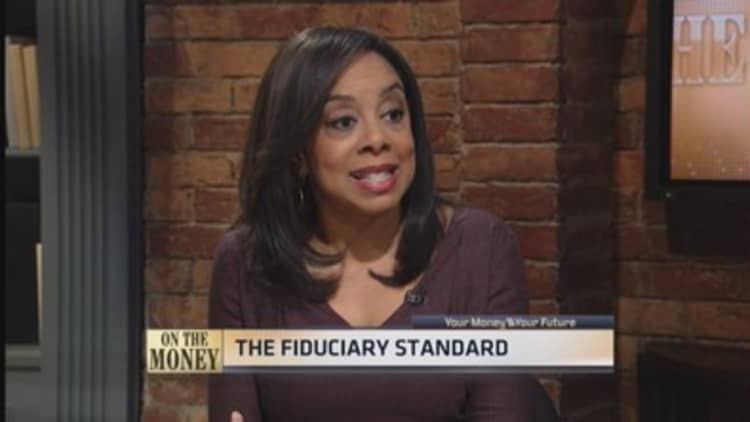
President Barack Obama called for new regulations this week to ensure that brokers who work with retirement accounts put investors' interests first. He wants to hold brokers to a higher standard. But how do you know if your financial advisor is putting your interests above his or her own bottom line?
You won't know unless you ask these three questions:
Are you a broker, a registered investment advisor or a certified financial planner?
Brokers, regulated by the Financial Industry Regulatory Authority (FINRA), are required to make recommendations suitable to their clients' financial needs and goals. Under the "suitability" rule, a broker's loyalty is to the financial services firm that he or she works for, and not necessarily the client.
A registered investment advisor is registered and regulated by the Security and Exchange Commission (SEC) or a state's securities regulator. These regulatory agencies require that a registered investment advisor put their client's best interests above their own, upholding a "fiduciary standard."
For example, putting a client's interests above their own financial interest means that a registered investment advisor can't buy or sell investments that may result in a higher commission for the advisor, or the advisor's investment firm, unless it is the best investment for the client.
Read MoreWhy brokers are clamoring for your IRA money
Some brokers and registered investment advisors may also be certified financial planners and have a "CFP" designation after their names. These planners have gone through rigorous testing on retirement,college, estate planning and other personal finance topics.
If they are actually providing financial planning services to clients, then they have a fiduciary duty. That requires them to place the interest of the client ahead of their own at all times.
How will you disclose any potential conflicts of interest?
Say you receive conflicted advice when rolling over a 401(k) balance to an IRA when you retire. You could lose about 12 percent of the value of your savings over a 30-year retirement, according to estimates by the Council of Economic Advisors. That's a loss of $12,000 on a $100,000 rollover.
So it's critical to find out if your advisor has any current or potential conflicts of interest. You want to make sure the advisor tells you if he or she has some sort of relationship with a financial services firm that may be offering an investment being suggested by the advisor.
Read MoreWill the unemployed soon be able to tap retirement accounts?
You should also find out if there are any disclosures or complaints about the broker or advisor. These can be obtained by going to the BrokerCheck link on the FINRA website, and the Investment Advisor Search on the SEC website.
How are you compensated?
Often one of the first questions a client asks if how much the advisor charges. However, it is critical to know what you are paying for as well as how the advisor gets paid. Some financial advisors receive a fee based on assets under management, a flat fee or an hourly fee.
Read MoreDo you know what you pay your advisor?
Other advisors are paid by commission—not a bad thing as long as they have your best interest in mind. Sometimes the question of whose best interest comes first can get murky when advisors are compensated by a combination of commissions and fees. Just be sure to ask and understand the differences in how they are paid and what is provided.
You can find other questions to ask a financial advisor here.
For more on Your Money, Your Future, watch "On The Money" on CNBC on Sundays at 7:30 pm ET.






